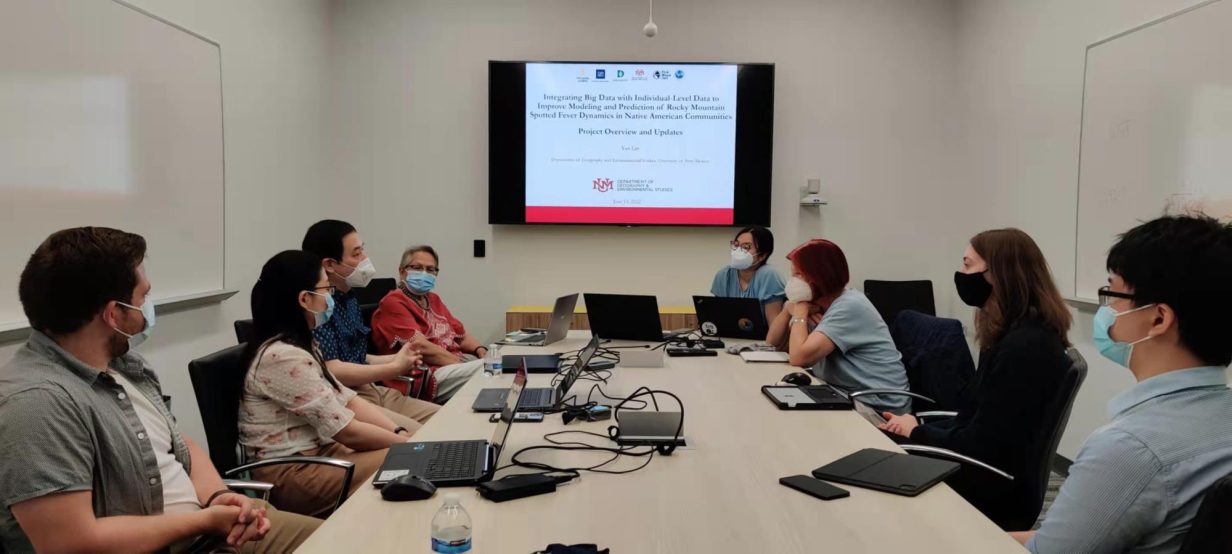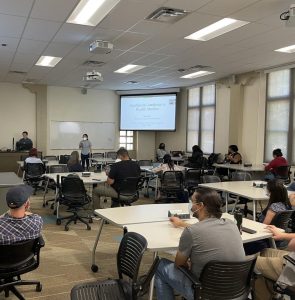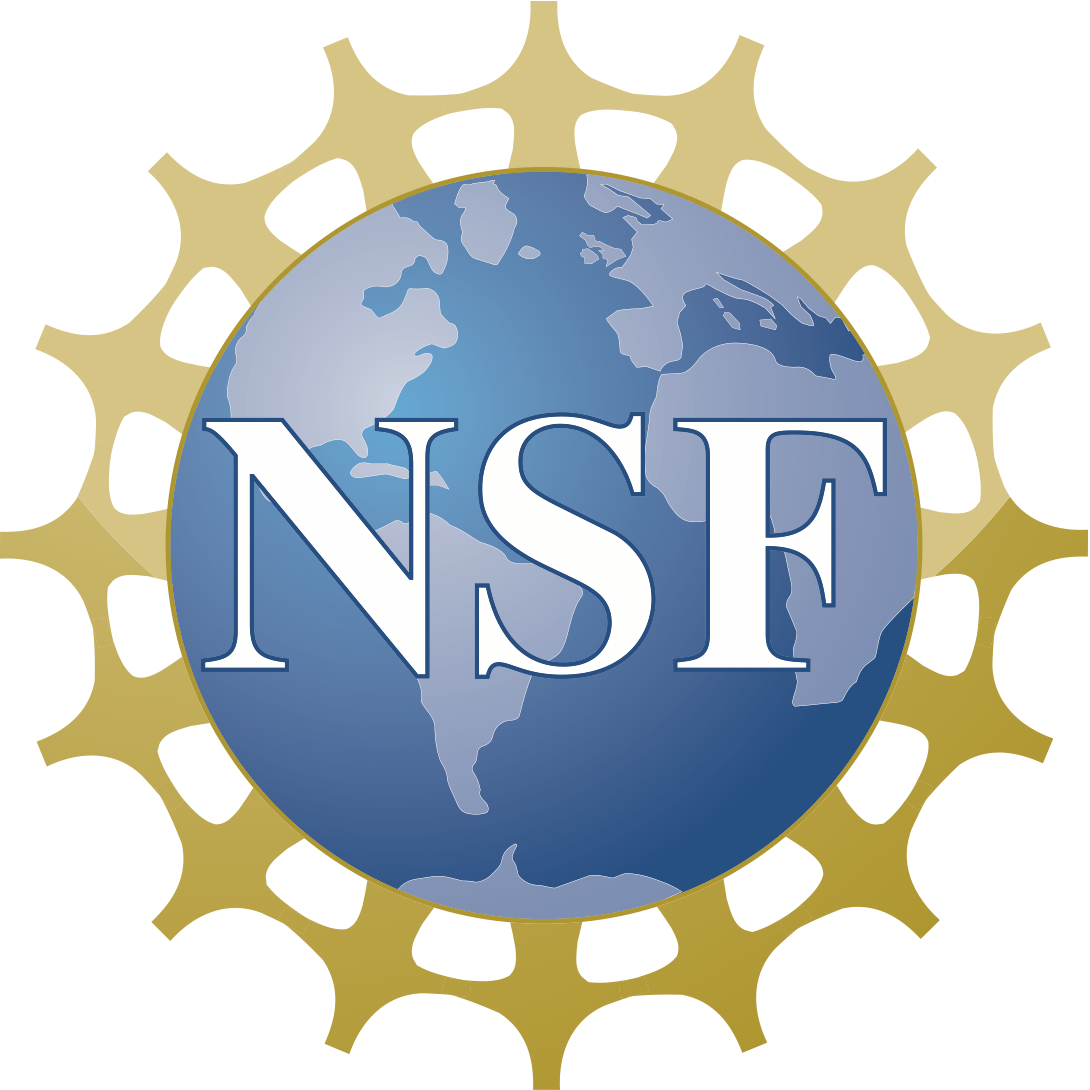
TickBase Project Supports New Internship Program to Address Environmental Health in Underserved Communities
Track 2 TickBase project introduced undergraduate students to the field of Geographic Information Science (GIS) and how to use it to address health disparities in underserved communities. This program was in partnership with Diné College, University of Idaho, University of Nevada, Reno, and Dartmouth College.
Through an intensive two-week curriculum, the program not only trained future leaders in this dynamic field but provided them with real-world opportunities to address environmental health challenges facing their communities.
“It is great to see students bring their own questions from their communities and bring back some tools to help address those important questions.”
Yan Lin
The program was headed by Yan Lin, associate professor of Geography and Environmental Studies at UNM, and TickBase research participant. “I think it is important to train our next generation at the intersection of geospatial data science, environment, community, and health to allow them to solve the contemporary and future complicated interdisciplinary challenges,” said Lin.
Geospatial mapping is used to identify areas with increased potential for exposure to harmful contaminants in drinking water, plants, soil, and air. This analysis is done through precise models developed by researchers who work with the communities they are serving to ensure that the models meet their needs.
Several topics were covered as an introduction to the importance and application of this work, including Geospatial analysis in health, natural hazards and risk modeling, and environmental justice. Students had the opportunity to learn from some of the leading experts in the field, including TickBase participants Xun Shi and Meifang Li from Dartmouth, and Chao Fan and Zhe Wang from the U of I.
This immersive experience culminated in the development of research projects by each student, which they will continue to build on. Lin said, “It is great to see students bring their own questions from their communities and bring back some tools to help address those important questions. They are looking into a variety of local challenges, including environmental justice related to mining, climate change, and mine waste redistribution, access to healthcare, mining and health outcomes, land use, and brownfields in the Navajo Nation. I am glad this internship will help them understand and address some of these issues.”



